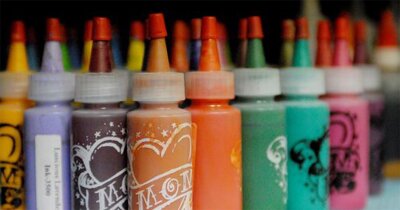After reports suggest of skin problems, including rashes, swelling and blistering, the federal government has begun studying materials tattoo artists have injected into the skin of some 45 million Americans.
Scientists from the Food and Drug Administration have began studies to identify the chemical composition of tattoo and permanent makeup inks. They want to identify exaclty how the chemicals break down in the body and the long term effects, primarily any risks.
The move could potentially shake up the industry and leading chemical suppliers but many say the protection of consumers should be the first concern. “The FDA doesn’t do anything. If you are concerned about public safety, we need rules and guidelines,” said Charles Zwerling, an ophthalmologist and chairman of the American Academy of Micropigmentation, a non-profit group that certifies permanent makeup professionals.

Regulation of the industry has been left to the states, which focus on sanitation and basic health codes rather than the inks themselves. Some of the inks have caused allergic reactions, including itchy and inflamed skin.
One case in 2005 resulted in a recall of 52,114 containers made by a Texas company as more than 150 cases of swelling, cracking, peeling, blistering, scarring and chronically inflamed tissue were reported to the FDA.
FDA spokeswoman Stephanie Kwisnek said reports of skin problems, the growing popularity of tattoos and “concerns raised by the scientific community” have spurred the agency to take a closer look at the issue.
The FDA said the research, which could take several years, will supplement what has been known for some time — that careless tattooing can lead to skin infections and diseases such as hepatitis, tetanus and HIV from the use of non-sterile equipment.